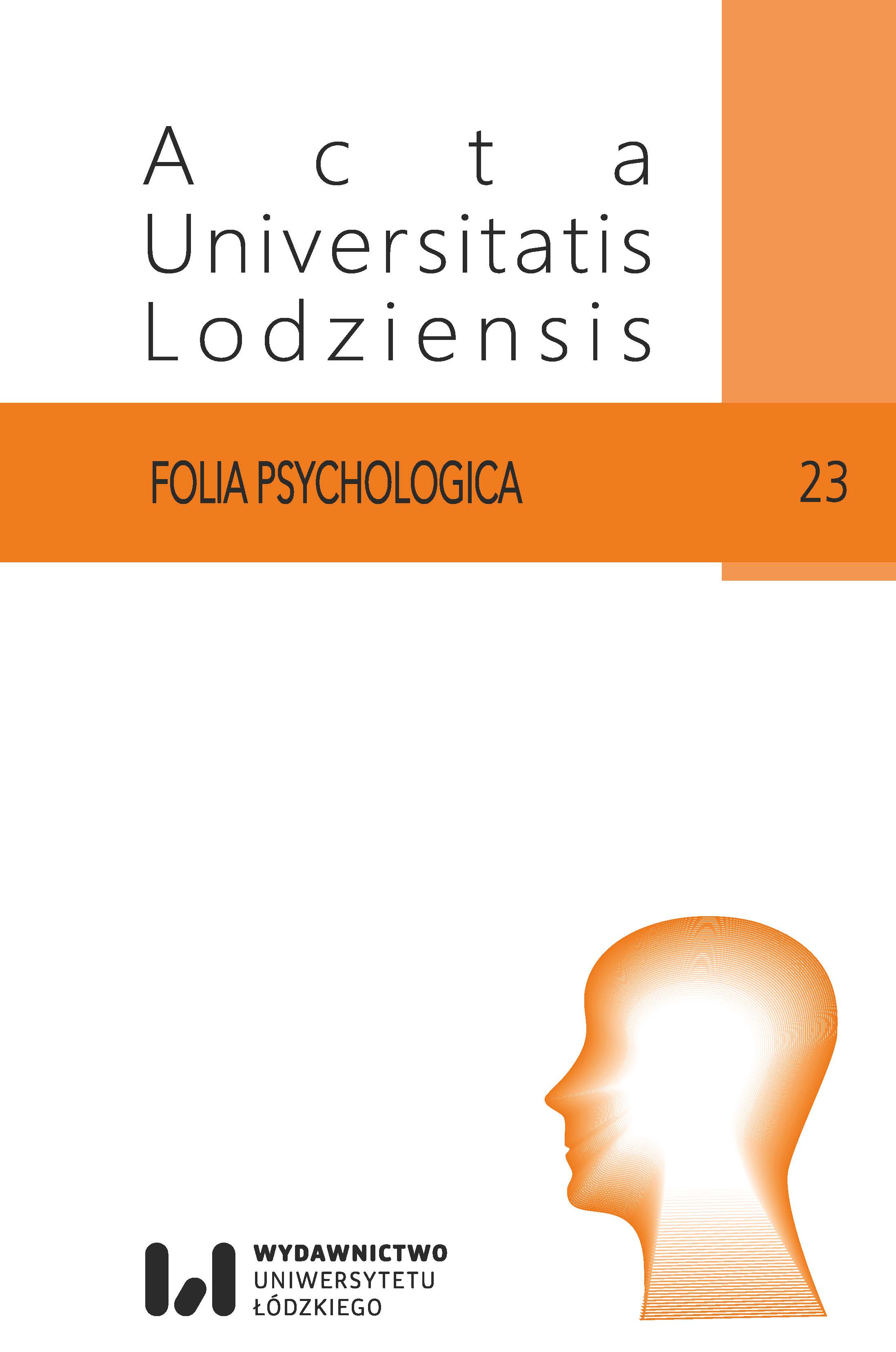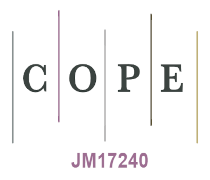Doświadczenia religijne osób z niepełnosprawnością intelektualną
DOI:
https://doi.org/10.18778/1427-969X.23.03Słowa kluczowe:
niepełnosprawność intelektualna, religijnośćAbstrakt
Zgodnie z modelem społeczno-ekologicznym niepełnosprawność intelektualna jest wielowymiarowym stanem ludzkiej egzystencji, który rozpatruje się w relacji do wymogów środowiska. Jeden z czynników tego modelu, tj. kontekst, wskazuje na to, iż na funkcjonowanie osoby z niepełnosprawnością wpływa wiele właściwości wewnętrznych osoby oraz jej otoczenia. Do nich należą też doświadczenia duchowe i doświadczenia religijne osoby z niepełnosprawnością intelektualną. W artykule tym będą omawiane kwestie związane z religijnością tej grupy osób jako istotne dla ich funkcjonowania. Dokonana w nim została metaanaliza wyników badań dotyczących tego zagadnienia. Przedstawiony będzie komponent poznawczy, emocjonalno-motywacyjny oraz behawioralny postawy religijnej. Zagadnienia te są stosunkowo rzadko poruszane w literaturze przedmiotu. Analiza literatury przedmiotu wskazuje na to, iż religijność ma duże znaczenie dla funkcjonowania osób z niepełnosprawnością intelektualną. Szczególnie ważne są dla nich doświadczenia religijne (komponent emocjonalny) oraz praktyki religijne (komponent behawioralny).
Bibliografia
Bassett R.L., Perry K., Repass R., Silver E., Welch T. (1994). Perceptions of God among persons with mental retardation: A research note. Journal of Psychology and Theology, 22, 45–49. https://doi.org/10.1177/009164719402200105
Google Scholar
DOI: https://doi.org/10.1177/009164719402200105
Carter E.W., Boehm T.L. (2019). Religious and spiritual expressions of young people with intellectual and developmental disabilities. Research and Practice for Persons with Severe Disabilities, 44, 37–52. https://doi.org/10.1177/1540796919828082
Google Scholar
DOI: https://doi.org/10.1177/1540796919828082
DSM-V (2013). Diagnostic and statistical manual of mental disorders, 5th ed. Washington DC: American Psychiatric Association.
Google Scholar
Gaventa W.C. (2010a). Enhancing spiritual supports and faith community leadership: Unique opportunities for University Centers on intellectual disabilities. W: V.P. Prasher (ed.), Contemporary issues in intellectual disabilities (331–334). New York: Nova Science Publishers.
Google Scholar
Gaventa W.C. (2010b). Faith, biotechnology and disability. W: V.P. Prasher (ed.), Contemporary issues in intellectual disabilities (335–339). New York: Nova Science Publishers.
Google Scholar
Gaventa W.C. (2010c). Signs of the time: Interpreting developments in spiritual supports for people with ID through a theological lens. W: V.P. Prasher (ed.), Contemporary issues in intellectual disabilities (341–343). New York: Nova Science Publishers.
Google Scholar
Golan Z. (2006). Pojęcie religijności. W: S. Głaz (red.), Podstawowe zagadnienia psychologii religii (71–79). Kraków: Wydawnictwo WAM.
Google Scholar
Harris J.C. (2006). Intellectual disability. Understanding its development, causes, classification, evaluation, and treatment. Oxford: Oxford University Press. https://doi.org/10.1093/oso/9780195178852.001.0001
Google Scholar
DOI: https://doi.org/10.1093/oso/9780195178852.001.0001
Hoeksema T.B. (1995). Supporting the free exercise of religion in the group home context. Mental Retardation, 33, 289–294.
Google Scholar
Hyla W. (2006). Rola Kościoła Katolickiego w rozwoju duchowości niepełnosprawnych. W: J. Patkiewicz (red.), Odpowiedzialność w obliczu niepełnosprawności (55–60). Wrocław: Studio Wydawniczo-Typograficzne „Typoscript” i Polskie Towarzystwo Walki z Kalectwem.
Google Scholar
ICD-10/11, International Classification of Diseases 10/11th Revision, https://icd.who.int/browse11/l-m/en (dostęp: 10.11.2022).
Google Scholar
Krupska J. (1988). Jean Vanier i jego dzieło. W: D. Kornas-Biela (red.), Osoba niepełnosprawna i jej miejsce w społeczeństwie (17–24). Lublin: Redakcja Wydawnictw KUL.
Google Scholar
Lifshitz H., Glaubman R. (2007). Behavioral, cognitive, and emotional components of religious concepts among students defined as borderline and those with intellectual disability. Megamot, 43, 330–369.
Google Scholar
Lifshitz H., Katz Y.J. (2009). Religious concepts among individuals with intellectual disability: A comparison between adolescents and adults. European Journal of Special Needs Education, 24, 183–201.
Google Scholar
Lifshitz H., Weiss I., Fridel S., Glaubman R. (2009). Why individuals with intellectual disability turn to religion: Behavioral and psychological motives of adolescents and adults. Education and Training in Developmental Disabilities, 44, 196–206. https://doi.org/10.1080/08856250902793651
Google Scholar
DOI: https://doi.org/10.1080/08856250902793651
Lowell E., Tonnsen B., Bailey D., Roberts J. (2017). The effects of optimism, religion, and hope on mood and anxiety disorders in women with the FMR1 premutation. Journal of Intellectual Disability Research, 61, 916–927. https://doi.org/10.1111/jir.12409
Google Scholar
DOI: https://doi.org/10.1111/jir.12409
Luckasson R. i in. (1992). Mental retardation. Definition, classification and systems of support. Washington DC: American Association on Mental Retardation.
Google Scholar
Luckasson R. i in. (2002). Mental retardation. Definition, classification and systems of support. Washington DC: American Association on Mental Retardation.
Google Scholar
Mathew S. (2020). Coping and perceived social support of adolescents with specific learning disabilities in South India. Learning Disabilities: A Contemporary Journal, 18(2), 167–175.
Google Scholar
McNair J., Smith H.K. (1998). Community based natural support through local churches. Mental Retardation, 36, 237–241. https://doi.org/10.1352/0047-6765(1998)036<0237:CNSTLC>2.0.CO;2
Google Scholar
DOI: https://doi.org/10.1352/0047-6765(1998)036<0237:CNSTLC>2.0.CO;2
Prężyna W. (1981). Funkcja postawy religijnej w osobowości człowieka. Lublin: Redakcja Wydawnictw KUL.
Google Scholar
Prężyna W. (1988). Funkcja motywacyjna wartości religijnych w osobowości człowieka. W: A. Biela, Z. Uchnast, T. Witkowski (red.), Wykłady z psychologii w KUL w roku akademickim 1985/86 (261–275). Lublin: Redakcja Wydawnictw KUL.
Google Scholar
Reiss S. (2000). Why people turn to religion: A motivational analysis. Journal for the Scientific Study of Religion, 56, 47–52. https://doi.org/10.1111/0021-8294.00004
Google Scholar
DOI: https://doi.org/10.1111/0021-8294.00004
Reiss S., Havercamp S.M. (1998). Toward a comprehensive assessment of fundamental motivation: Factor structure of the Reiss Profiles. Psychological Assessment, 10, 97–106. https://doi.org/10.1037/1040-3590.10.2.97
Google Scholar
DOI: https://doi.org/10.1037/1040-3590.10.2.97
Sałkowska A. (2010). Rodzinkowy system wychowania wg Siostry Jaroszewskiej. Niepublikowana praca magisterska. Warszawa: Akademia Pedagogiki Specjalnej.
Google Scholar
Schalock R.L., Luckasson R., Tassé M.J. (2021). Intellectual disability: Definition, diagnosis, classification, and systems of supports, 12th ed. Washington DC: American Association on Intellectual and Developmental Disabilities. https://doi.org/10.1352/1944-7558-126.6.439
Google Scholar
DOI: https://doi.org/10.1352/1944-7558-126.6.439
Schalock R.L. i in. (2010). Intellectual disability. Definition, classification and systems of support. Washington DC: American Association on Intellectual and Developmental Disabilities.
Google Scholar
Schurter D. (2006). The religion and spirituality division of the American Association on Mental Retardation. Journal of Religion, Disability and Health, 10(1/2), 109–126. https://doi.org/10.1300/J095v10n01_08
Google Scholar
DOI: https://doi.org/10.1300/J095v10n01_08
Shogren K.A., Rye M.S. (2005). Religion and individuals with intellectual disabilities: An exploratory study of self-reported perspectives. Journal of Religion, Disability and Health, 9(1), 29–53. https://doi.org/10.1300/J095v09n01_03
Google Scholar
DOI: https://doi.org/10.1300/J095v09n01_03
Swinton J. (2002). Spirituality and the lives of people with learning disabilities. Tizard Learning Disability Review, 7, 29–35. https://doi.org/10.1108/13595474200200037
Google Scholar
DOI: https://doi.org/10.1108/13595474200200037
Thompson J.R., Bryant B.R., Campbell E.M., Craig E.M.P., Hughes C.M., Rotholz D.A., Schalock R.L., Silverman W.P., Tasse M.J., Wehmeyer M.L. (2004). Supports intensity scale. Users manual. Washington DC: American Association on Mental Retardation. https://doi.org/10.1037/t02820-000
Google Scholar
DOI: https://doi.org/10.1037/t02820-000
Thompson J.R., Bradley R.E., Buntinx W.H.E., Schalock R.L., Shogren K.A., Snell M.E., Wehmeyer M.L. with: Borthwick-Duffy S., Coulter D.L., Craig E.M., Gomez S., Lachapella Y., Luckasson R.A., Reeve A., Spreat S., Tasse M.J., Verdugo M., Yeager M.H. (2009). Conceptualizing supports and the support needs of people with intellectual disabilities. Intellectual and Developmental Disabilities, 47, 135–146. https://doi.org/10.1352/1934-9556-47.2.135
Google Scholar
DOI: https://doi.org/10.1352/1934-9556-47.2.135
Tomasik E. (1997). Rewalidacyjne znaczenie wspólnot integracyjnych. W: E. Tomasik (red.), Wybrane zagadnienia z pedagogiki specjalnej (90–98). Warszawa: Szkoła Wyższa Psychologii Społecznej.
Google Scholar
Turner S., Hatton Ch., Shah R., Stansfield J., Rahim N. (2004). Religious expression amongst adults with intellectual disabilities. Journal of Applied Research in Intellectual Disabilities, 17, 161–171. https://doi.org/10.1111/j.1468-3148.2004.00192.x
Google Scholar
DOI: https://doi.org/10.1111/j.1468-3148.2004.00192.x
Vanier J. (1988). Cierpienie osoby upośledzonej umysłowo. W: D. Kornas-Biela (red.), Osoba niepełnosprawna i jej miejsce w społeczeństwie (25–34). Lublin: Redakcja Wydawnictw KUL.
Google Scholar
Vanier J. (1993). Zranione ciało. Warszawa: Wydawnictwo Księży Marianów.
Google Scholar
Vanier J. (1994). Jezus, dar miłości. Poznań: Wydawnictwo „W drodze”.
Google Scholar
Wehmeyer M.L., Buntinx H.E., Lachapelle Y., Luckasson R.A., Schalock R.L., Verdugo M.A., with: Borthwick-Duffy S., Bradley V., Craig E.M., Coulter D.L., Gomez S.C., Reeve A., Snell M.E., Spreat S., Tasse M.J., Thompson J.R., Yeager M.H. (2008). The intellectual disability construct and its relation to human functioning. Intellectual and Developmental Disabilities, 46(4), 311–318. https://doi.org/10.1352/1934-9556(2008)46[311:TIDCAI]2.0.CO;2
Google Scholar
DOI: https://doi.org/10.1352/1934-9556(2008)46[311:TIDCAI]2.0.CO;2
Zasępa E. (2006). Religijność w życiu osób z niepełnosprawnością intelektualną. W: S. Głaz (red.), Podstawowe zagadnienia psychologii religii (533–545). Kraków: Wydawnictwo WAM.
Google Scholar
Zasępa E. (2011). Zaburzenia behawioralne i emocjonalne oraz ich korelaty u osób dorosłych z lekką niepełnosprawnością intelektualną. Warszawa: Wydawnictwo Akademii Pedagogiki Specjalnej.
Google Scholar
Zasępa E. (2014). Psychologiczne aspekty doświadczania żałoby u osób niepełnosprawnych intelektualnie. W: B. Antoszewska, J. Binnebesel (red.), Porozmawiajmy o śmierci… (282–309). Olsztyn: Wydawnictwo Uniwersytetu Warmińsko-Mazurskiego.
Google Scholar
Opublikowane
Jak cytować
Numer
Dział
Licencja

Utwór dostępny jest na licencji Creative Commons Uznanie autorstwa – Użycie niekomercyjne – Bez utworów zależnych 4.0 Międzynarodowe.









